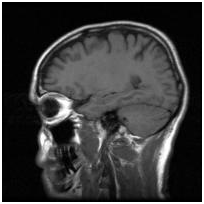
--
Findings of a landmark study, recently presented at the Neuromed Institute at Sapienza University in Rome, highlighted results that a sophisticated scan — Diffusion Tensor Magnetic Resonance Imaging, DTI — is able to detect early signs of brain damage due to high blood pressure.
DTI, often referred to DT-MRI, is an innovative diagnostic technique — a variable of magnetic resonance imaging, commonly known as MRI. However, DTI allows doctors to isolate regions of brain injury by isolating the water molecule movement within the brain, which MRI cannot typically detect.
High blood pressure has been linked to brain injury damage that affects cognitive ability such as thinking clearly, decision making and emotional control, according to the researchers, who studied the DTI brain scans of 30 participants – half of whom had been diagnosed with high blood pressure and half had no history of hypertension.
Senior study author, Daniela Carnevale gave a new release statement from the American Heart Association, saying, “We already have clear ways to explore the damage high blood pressure can cause to the kidneys, eyes, and heart. We wanted to find a way to assess brain damage that could predict the development of dementia associated with vascular diseases. DTI provides a way to evaluate pre-symptomatic brain damage in people with high blood pressure in order to identify possible therapies to help control brain damage and reduce the eventual development of dementia.”
The study participants were scanned using standard MRI, but researchers did not detect any brain abnormalities. However, when the state of the art DTI scans were used, indications of nerve fiber damage was observed in the brains of the participants who had high blood pressure.
This type of brain injury causes function difficulty — affecting non-verbal function, decision-making and emotional control — as well as the ability to maintain cognitive focus, according to the news release.
Although the cause-and-effect association was not confirmed, researchers found that the thinking test scores of participants who had high blood pressure were also significantly lower — indicating impaired thinking or memory — than the participants who did not have hypertension.
Vascuvite is a natural blood pressure support company whose mission is to provide communities with the latest health news and research in an ongoing effort to help people with high blood pressure make informed therapy choices. Learn more at http://vascuvite.com/
Release ID: 98582

